US talk show host Bill Maher has attacked the media for its silence over the genocide of Christians taking place in Nigeria where thousands have reportedly been murdered by groups including Boko Haram and Islamic State. But the genocide claim is contested by the Nigerian government who say “simplistic” accusations only “fuel propaganda”. What’s the truth? Ben Cohen from Open Doors gives his view
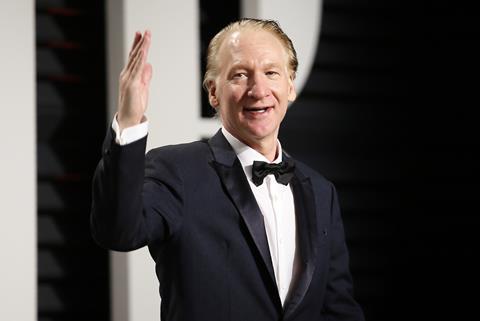
“If you don’t know what’s going on in Nigeria, your media sources suck! You are in a bubble.”
I first saw the clip of Bill Maher berating the world’s media over Nigeria a few hours after it was broadcast on his late-night talk show. It has been shared with me pretty much every day since. To many, Bill is a controversial figure and not one to mince his words on, well, anything, including religion – he is a devout atheist.
However, his angry denunciation of media silence over the violence in Nigeria seems to have touched a nerve. Newsweek’s headline “Christians ‘Are Being Wiped Out’ in Nigeria as Millions Face Death: NGOs” is one of several recent headlines.
Bill Maher delivers a surprising moment on air as he calls out the slaughter of CHRISTIANS in Nigeria that the media refuses to cover.
— Vigilant Fox 🦊 (@VigilantFox) September 27, 2025
“If you don’t know what’s going on in Nigeria, your media sources SUCK,” Maher said.
“You are in a BUBBLE. I’m not a Christian, but they are… pic.twitter.com/XzDD3LYBPB
Maher’s claims have drawn the attention of the Nigerian Government too: “No, Bill Maher, there is no ‘Christian genocide’ in Nigeria,” a spokesperson declared in a piece published by Al Jazeera, claiming that “Framing Nigeria’s violence as Muslims killing Christians grossly misrepresents the situation.”
The author of this piece is right about one thing: what is happening in parts of Nigeria is anything but simple. So, what can we say with confidence is happening there, and why is it happening? Here is what you need to know.
What is happening?
Several militant Islamist groups have built a major presence in the region, particularly in the largely Muslim north of the country. Among these are the infamous Boko Haram and the group Islamic State West Africa Province (ISWAP). ISWAP has ties with the same extremist groups and ideologies that drove the so-called Islamic State to take over parts of Syria and Iraq ten years ago. Just like the original Islamic State (IS), they have radicalised ideologies to build a “sharia state” governed by an extreme and violent interpretation of Islamic law.
In addition, radicalised members of the Fulani ethnic group have wreaked havoc in the predominantly Christian Middle Belt, which borders the northern Muslim states. Here the biggest threat comes from radicalised Fulani tribesmen, responsible for 55% of recorded Christian deaths between 2019 and 2023.
Together, these groups have unleashed waves of violence across the area, with thousands killed every year and millions driven from their homes – often they are living in horrific conditions in IDP camps, unable to return home.
Is it a religious conflict? Yes, but not solely. There is a tangle of different factors at play. The primary one is power and control. The extremists all want to rule over the land and the people. Another is poverty – if you have nothing, you are susceptible to radicalisation by Islamist groups.
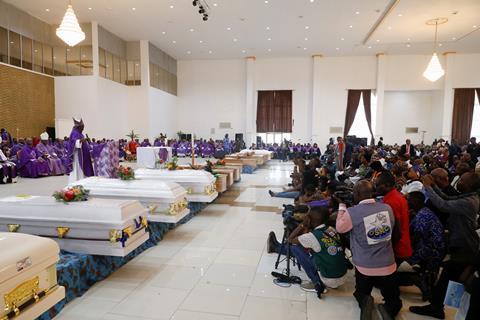
For the Fulani, a real factor is scarcity of resources brought on by climate change. This has driven them further south, in search of fertile land for their cattle. Christians own most of the farming land they are coveting. However, elements of the Fulani tribe have been radicalised with Islamist ideology that justifies subjugating Christians as infidels.
Whether Christians are deliberately targetted is hotly contested, not least by the Nigerian Government. However, the statistics show a clear pattern.
According to the most recent statistics from the Observatory for Religious Freedom in Africa (ORFA), more Nigerian Christians were victims of violence than any other faith groups.
Among the 30,880 civilians killed for faith-related reasons in the reporting period 2019-2023, 22,361 Christians were killed and 8,314 Muslims. That’s a ratio of 2.7 to 1. However, we must consider that Christians are a small minority in Northeast and Northwest Nigeria. So, if you are a Christian you are 6.5 times more likely to be killed than a Muslim. This doesn’t make those Muslim deaths any less tragic, but it does make them less likely.
Victims tell us that upon being kidnapped their captors say things like “if you were Muslim, you wouldn’t be tortured like this”
Making matters even more complicated, there is a serious problem with banditry and lawlessness in the north of the country. Kidnapping is big business, with over 20,000 abducted in a four-year period between 2019 and 2023.
They can target anyone who will pay a price – but have learned that Christians, and specifically religious leaders, can fetch a higher ransom. This makes them especially vulnerable.
Premier Christianity has run a number of stories on the persecution of Christians in Nigeria and elsewhere. Here are some recent examples
- Islamists forced my denomination to close over 70 churches. But they won’t win
- Christians are the most persecuted religious group in the world. Why is the media silent?
- 50 Christians have been murdered during a church service. Nigeria is failing to defeat Islamic extremists
- Christians were targets for terror this Christmas. Here are 4 ways we should respond
- A silent genocide is being waged against Christians in Nigeria. The world must act now
Beyond Nigeria
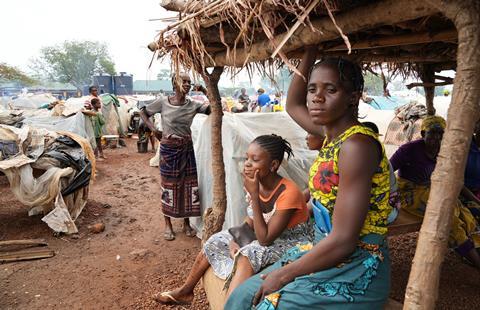
Islamist violence is spreading across many nations in sub-Saharan Africa. Islamist extremists and radicalised criminal gangs are exploiting existing conflicts, insecurities and poverty across nations such as Sudan and Eritrea in the east, Niger and Burkina Faso in the west, the Democratic Republic of the Congo in central Africa and as far south as Mozambique.
Again, there are numerous agendas and motives at play. However, there is a common thread, extremist Islamist ideologies are attempting to gain control of whole regions of Africa.
However, Nigeria is the epicentre of this violence, and if the violence and instability goes unchecked there will be millions more displaced from their homes; the implications for the rest of the continent are huge.
Listening to victims
It’s vital to give those closest to the violence a voice, rather than just discuss statistics thousands of miles away. Those who have seen the terror first hand tell of radicalised Fulanis laying waste to their villages. As they are killing, raping and kidnapping they will often shout “we will destroy all Christians.”
Survivors tell us of the brutality of Boko Haram and ISWAP, who have publicly and repeatedly said they would rid the nation of Christians and infidels. Victims tell us that upon being kidnapped their captors say things like “if you were Muslim, you wouldn’t be tortured like this” or that they could end it all “if you just proclaim to be a Muslim.”
Is this a Genocide?
Genocide is a term that Bill Maher and others have used and it’s an emotive word. It’s one that requires under law that specific elements are met. Under international law it isn’t enough that many people are killed, you must prove that the purpose of the act was to destroy a national, ethnic, racial, or religious group, ie you must prove this is the intent of those perpetrating the violence and this isn’t easy to do.
More importantly, many in high office are afraid to use the word because under international law it triggers a responsibility of governments to act.
However, a reasonable case exists that Boko Haram, ISWAP, and the Fulani militants have committed international crimes, whether it be genocide, ethno-religious cleansing, or crimes against humanity. Governments should investigate this further, but not at the expense of immediate, urgent assistance.
While Maher and many others claim that the media have been ignoring this, it’s unlikely that the media have been deliberately turned a blind eye to the violence. And indeed, the topic finally appears to be gaining some traction in the secular media – it has been regularly discussed in Christian media, including Premier Christianity (see above box).
However, many secular journalists have been quick to adopt the Nigerian Government’s messaging of the violence being non-religious. They will describe Fulani militant attacks as “clashes” between farmers and herders (rather than targeted attacks on defenceless Christian villagers with machine guns, AK47s and grenades).
What is hard to dispute is that, for many years, tens of thousands have died at the hands of extremists – and what Bill Maher got right is that very few people are talking about it. This deserves attention.
Join Open Doors’ Arise Africa campaign and help break the silence over the slaughter














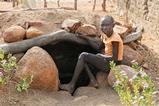

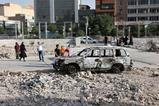





















No comments yet